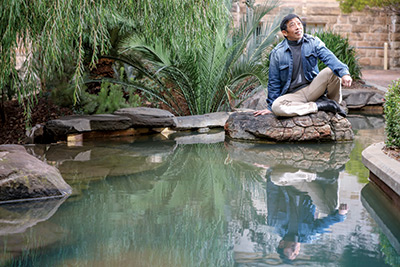From peasant to professor

Professor Mobo Gao To understand the power of education to change lives you need to talk to Mobo Gao, professor of Chinese and director of the Confucius Institute at the University.
Professor Mobo Chang Fan Gao was born in the farming village of Gao in China’s Jiangxi Province, where he lived a peasant’s life until selected for university at the age of 21. After a degree in English teaching, in 1977 the Chinese government sponsored him to do a Masters degree in the United Kingdom. Gao then did a PhD at the University of Essex on Noam Chomsky’s linguistics, as a self-sponsored student.
He returned to China to teach English for five years but, disillusioned with linguistics and anxious to understand what had happened to his homeland since the Communist Revolution, he jumped at the offer of a teaching job at Griffith University in Australia. From there he moved to the University of Tasmania before arriving at ÐÂÀ˲ÊƱ in 2008.
From farm labourer to internationally regarded scholar – with four books and dozens of papers and articles to his name – is impressive in any circumstances. But starting in China as it began to engage with the West surely makes Professor Gao’s achievements especially so.
His background also gives him a firsthand experience of the subtleties of Chinese politics and society, which make him uniquely suited to leading the University of ÐÂÀ˲ÊƱ’s Confucius Institute. Yes, he says, ÐÂÀ˲ÊƱ’s institute, like all the others around the world, receive funding from the Chinese Government and he does not doubt Beijing sees them as a way of projecting “soft power”—of presenting a positive image of China to the world. But unlike European equivalents, staffed by government officials, he works directly for the University.
In any case it would be a committed cadre who tried to give instructions to Professor Gao: “I don’t care what the Chinese authorities want, I do what is right for the University. But while it would be up to me to resist | 
